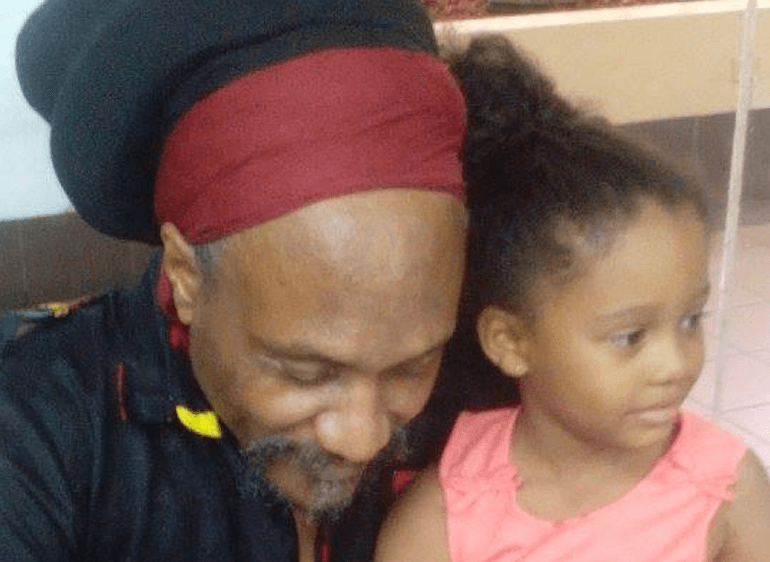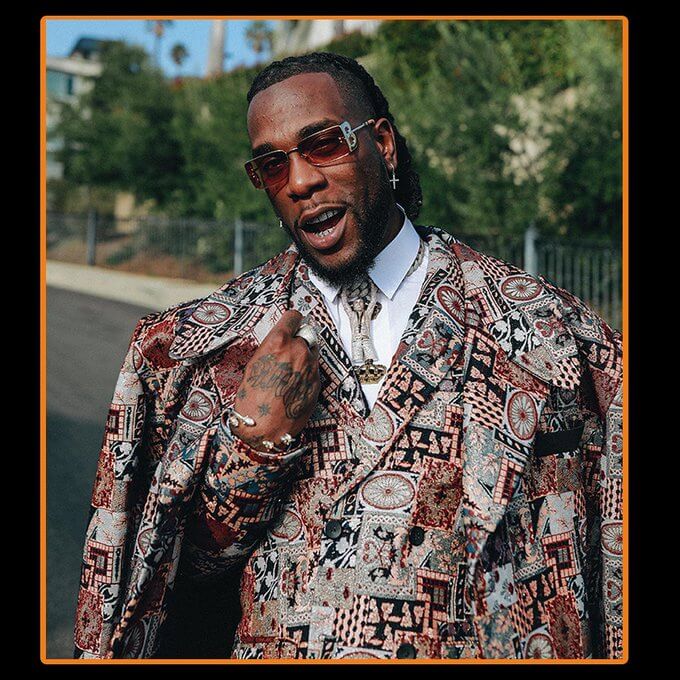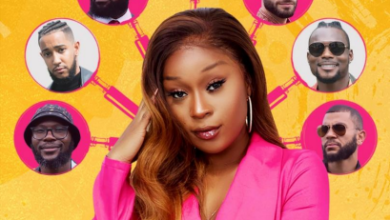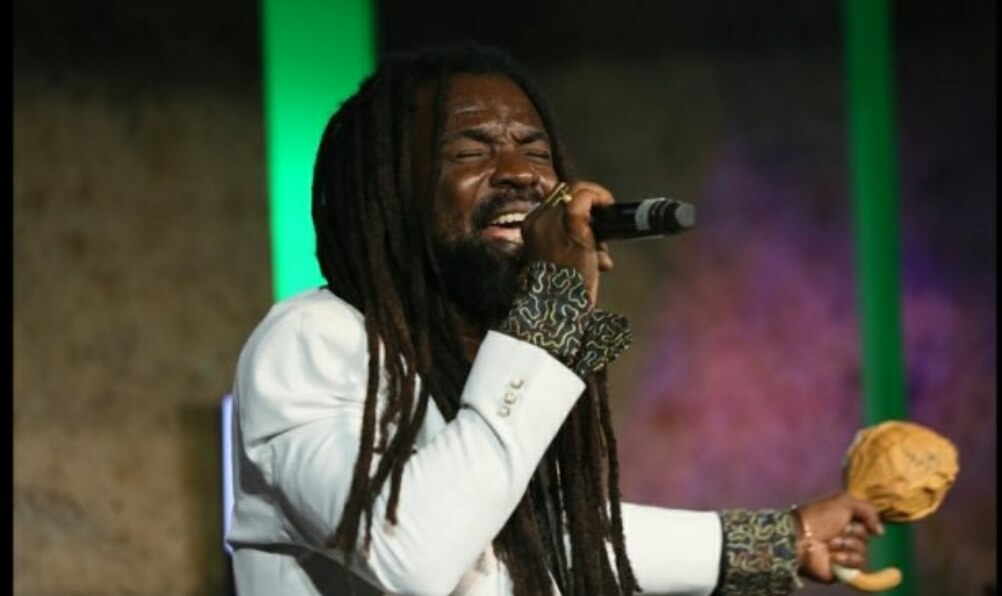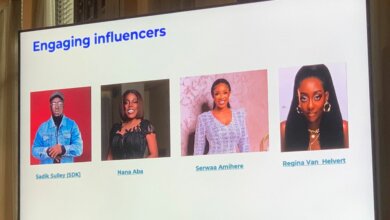Frank Agbro tells TheAfricanDream.net what drives his music
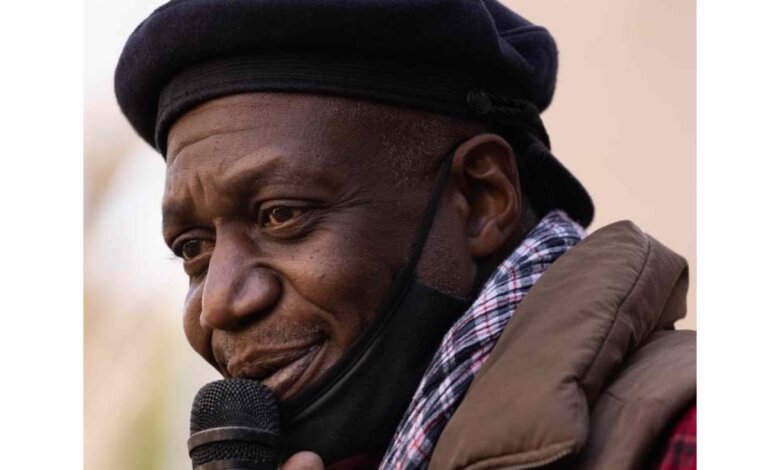
Frank Agbro is a music artist, producer, and creator professionally known as Frankojazz. He was also a radio show host of the Frankojazz Radio Show on WPFW 89.3FM in Washington DC, in the United States. Frank Agbro is known for making a unique style of music that is a fusion of different genres. These include Jazz, Rock and Hip-hop.
Prior to attending the Rochester Institute of Technology, he attended Worcester Academy, and soon after started showing his love for Afro-Caribbean rhythms in Washington DC. In 1995, Frank Agbro formed the band Frankojazz and released a recording titled “Sunset.”
He later chose to follow a solo career, and self-produced his debut album, “You,” after touring the local club circuit and even performing at the 1997 presidential inauguration ceremony of US President, Bill Clinton. Frank Agbro produces his own original music and videos and collaborates with other talented artists.
Almost two decades ago, Frank Agbro and his friends also started “6ft Aparty” on his front porch in Kilbourne Place, Mount Pleasant, US, as a way to help and promote local musicians. With the advent of COVID, what had been an occasional event has become a bi-weekly gathering of musicians, singers, dancers and dj’s from all over the DMV.
He has been featured in various publications such as the Washington City Paper. In an interview with TheAfricanDream.net (TAD), Frank Agbro discussed what drives his music.
TAD: What inspired you to pursue a career in music, and how has your cultural background influenced your sound?
As a child growing up in a typical Nigerian family, music was expected to be entertainment not to be pursued as a career. My parents were not musicians but they loved music especially the words of wisdom and parables that were communicated by way of highlife Afrobeat and Nigerian popular music through artists like Stephen Osadebe, Celestine Ukwu, Sonny Okosuns, Prince Nico Mbarga and Fela Kuti.
Of all those artists, I was drawn to the music of Fela Kuti the most because back then our parents could not afford a TV set. All we had was a radio and a record player. Fela Kuti was our newspaper. Everyone knew the living conditions in the country was very inequitable and corrupt and through his hypnotic rhythms and beats he was able to communicate to the masses the reasons we were all living under.
Fela’s music spoke to me. The instruments, the guts, the power, the messages were all things I could process and understand. Songs like “sweet mother” and “music line” by Prince Nico Mbarga also inspired me to appreciate humility and respect of others. At the time, as you would expect, Nigerian families didn’t buy musical instruments for their children so I used my ears to learn music.
Listening to what instruments were playing and how the singers flowed in their delivery and other nuances. It was not until my father who was a Nigerian diplomat was posted to France that I met real musicians. Naturally I became friends with them. I believe the musicians I mentioned, and my exposure to western popular music, jazz, and Cuban music influenced my sound.
TAD: Can you share a memorable experience or milestone in your music career so far?
A milestone in my career so far. I will begin by saying that my wife Lara and I have 3 children, Chineduonome, Iphe and NikiNnam, they are all musicians living together in Berlin, Germany. When the kids were young, my studio was their playground because you could not take the kids to live music venues and restaurants because of cigarette smokes everywhere.
Those studio interactions became the Frankojazz Family Band and we would have occasional performances on our front porch for the community and musician friends of ours who wanted to jam. Before the lockdown occurred during the 2020 pandemic, our band was supposed to perform at a neighborhood restaurant. We were ready to play so I decided that we perform on our front porch. But at the time, there was a lot of uncertainty in the air, and everything was shut down, it was a dark period.
However, we felt that in order for people to feel safe to come out, I called it the “6ft. Aparty” porch concerts. There were 3 shows – a midweek live music relief which featured classical musicians for the elders in the community, a children’s hour for the children since the schools were closed, and the open stage for singer-songwriters, and others who had no venue to perform. The shows have now become popular in Kilbourne Place.
TAD: How do you think your music contributes to the African music industry, and what sets you apart from other artists?
The power of storytelling, words of wisdom and beats through music is what connects me to the African music industry. What sets me apart from the rest is that I have been building from the ground up implementing values that are important to a healthy family and community. My shows are entertaining community friendly presentations as well as a cultural and educational experience while having fun.
TAD: You’re known for promoting local musicians. Can you tell us about your initiatives or projects that support emerging talent?
Yes. I believe playing live music is a shared experience and inspiration can come from anywhere. The music ecosystem can be very hard to navigate new talent, however if you have the opportunity to experience it in a live music setting, you can have a better grasp of the artists and their purpose. Prior to the pandemic, I had my own radio show on WPFW 89.3fm, live music and conversation for 3years.
So, the open stage which may sometimes include a short interview was the right platform to execute this project. This is a platform that gives me the opportunity to take the show on the road and connect with local musicians in other countries with my music as the thread that binds it all together.
I am also very curious as to how others from different cultures interpret my music in their own way, bringing their cultural background into the music in what I call “spontaneous combustion” moments. Most times those sessions happen with musicians who have never played together before.
TAD: How do you navigate the challenges of promoting local music in an industry dominated by international artists?
My radio show on WPFW 89,3fm (Pacifica) already was a platform that connected me to international artists. I’ve heard their stories, and in my mind, following a musician’s journey from the ground up is more sustainable and organic than the fly-by-night, one-hit-wonders we hear on radio. Through my free livestreams (for now) on Facebook, people have become familiar with local musicians and become a part of their growth and journey.
TAD: What advice would you give to aspiring musicians looking to break into the industry, especially those from Nigeria or Africa?
I would advise them to be true to themselves and not succumb to what they think would make them an overnight success with all the trappings of fame. Stay focused and humble and remember those who are important in your life and celebrate them in your music. Take chances. Sing and write about subjects around us that others ignore but have significance in our daily lives.
Think about not just the music, but also unusual but socially acceptable platforms or venues to express your talents. In other words think outside the box. However expect challenges wherever people are not used to it. Be diplomatic humble while persistent.
TAD: How do you leverage social media and other digital platforms to promote your music and support local musicians, and what strategies have been most effective for you?
During the pandemic, I decided to use Facebook to livestream because I was able to reach the older folks especially our older relatives living abroad who were not familiar with the monetizing platforms like YouTube and others. It was user friendly and purposeful and has proven successful attracting national and international audiences print media attention and the blogger sphere.
I am currently seeking monetizing platforms to grow my projects using through social media, merchandising and sponsors i.e., Mt. Pleasant Club Whiskey Straight Rye.
TAD: Is there anything else you personally want to share with the world outside of music?
As a result of my experiences as the son of a Nigerian diplomat who has lived in Tanzania, Botswana, France and Cuba. I speak snippets of some Nigerian languages Yoruba, Ibo but fluent in French and Spanish. My ability to communicate in those languages in a diverse multi cultural community such as Mt. pleasant Washington DC has served me well.
I was elected as the chair of the Mt. pleasant Advisory Neighborhood Commission to navigate neighborhood matters. In 2021, I was selected and recognized by the Washington City Paper as one of the People of 2020. My work with the 6ft. Aparty shows was featured in the Washington Post Magazine titled “The Mount Pleasant Miracle.” Photos of my 6ft. Aparty grazed the front cover.
I am married to Lara who is from Germany. We live in Mt. pleasant Washington DC. We met in Washington and we have 3 children who now live together in Berlin. They are performing musicians in Europe. They collaborate musically. Their work can be found on all social media under their artists’ names, Iphe, Chineduonome, and NikiNnam.
My primary source of income has been as a doorman for 30 years at the Historic Mayflower Hotel in DC where I met a guest who suggested and introduced me to TheAfricanDream.net. It’s that kind of organic unsolicited path that I choose to follow in my musical journey, I will be joining my children during our summer vacation playing shows in Europe, including a 3 day festival in Berlin from August 23-25 with the Frankojazz Family Band sprinkled with Local musicians.
Source: TheAfricanDream.net.
Oral Ofori is Founder and Publisher at www.TheAfricanDream.net, a digital storyteller and producer, and also an information and research consultant.

